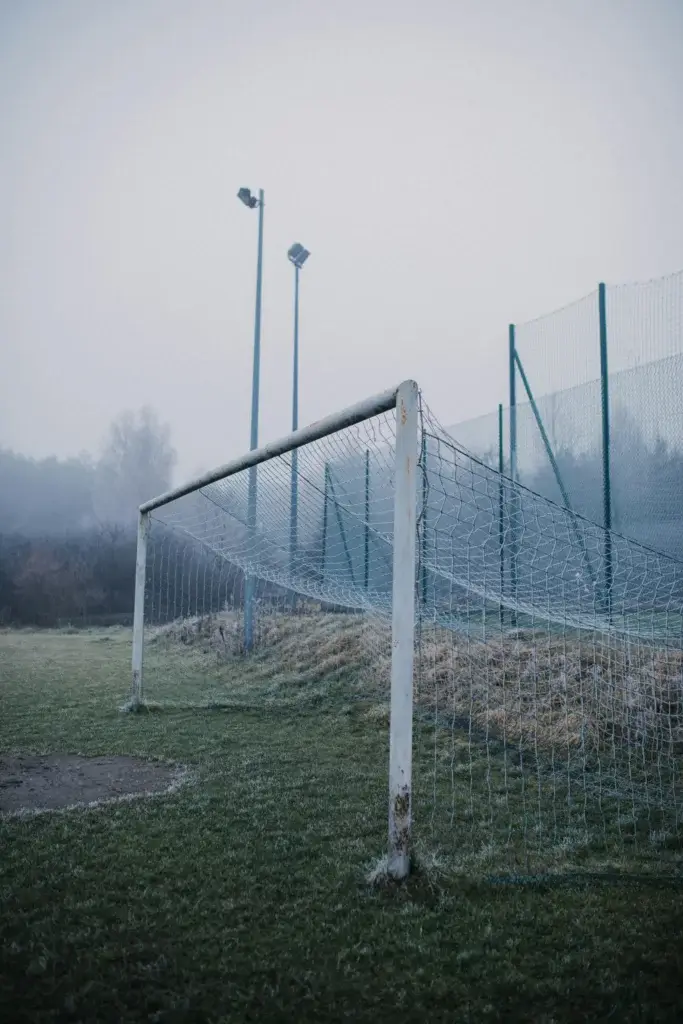Stormwater Runoff and Sports
When we think about sporting events, our minds usually drift to thrilling victories, legendary plays, and the electric atmosphere of the stadium. But behind the scenes, there’s an often overlooked, yet crucial player that can turn an epic game into a soggy mess: stormwater runoff. This hidden villain has wreaked havoc on many sporting events, demonstrating how stormwater runoff and sports can seriously be impacted.
What Is Stormwater Runoff?
Stormwater runoff occurs when rainwater or melting snow flows over impervious surfaces like roads, parking lots, and rooftops, picking up pollutants along the way. Instead of soaking into the ground, this runoff can carry harmful substances into waterways and, crucially for our discussion, flood sports fields and arenas.
How Stormwater Runoff Impacts Sporting Events
Field Conditions
The most immediate and visible effect of stormwater runoff is on the playing surface. Soccer fields, baseball diamonds, and football pitches are particularly vulnerable. Excessive runoff can lead to waterlogged fields, making them unplayable. This was vividly illustrated during the 2019 Copa America when torrential rains left the pitch in a state so poor that it affected the quality of the matches. Players were left struggling with slippery conditions, and the game’s integrity was compromised.
Event Delays and Cancellations
Beyond ruining the field, stormwater runoff can lead to significant delays or even cancellations. For instance, the 2021 US Open Tennis Championships faced severe disruptions due to heavy rains. The resultant water accumulation led to postponements and rescheduling, frustrating fans and players alike. These delays can have cascading effects, disrupting schedules and leading to financial losses for organizers.
Infrastructure Damage
Sporting venues are not just about the fields; they also include seating areas, parking lots, and concession stands. Intense runoff can damage these areas, leading to costly repairs. The 2017 Rugby League World Cup saw several matches affected by severe weather, with infrastructure issues arising that complicated event management and attendee experience.
Safety Concerns
Safety is paramount in any sporting event, and stormwater runoff can compromise this. Flooded areas can create dangerous conditions for players and spectators. Slippery surfaces increase the risk of injury, and standing water can harbor harmful bacteria, posing health risks. During the 2018 FIFA World Cup, heavy rains led to concerns over the safety of several stadiums, highlighting how weather conditions can affect player health and safety.

The 2024 Paris Olympics: A Case Study
The 2024 Paris Olympics have highlighted the significant impact of stormwater runoff and sporting events. A key concern has been the water quality in the Seine River, which hosted the open water swimming and triathlon events. Paris has been working diligently to address these issues, but stormwater runoff remains a challenge after significant rain in the first few days leading up to opening ceremonies.
In recent months, heavy rainfall has increased the amount of stormwater runoff entering the Seine, leading to elevated levels of pollutants. This has raised concerns about the safety and cleanliness of the water, prompting Paris officials to implement measures to improve water quality and mitigate pollution. The city has invested in advanced filtration systems and improved drainage to address these challenges.
However, the unpredictable nature of weather meant that delays in competition still had to take place so they could test pollution levels. Even prompting the city mayor to do a PR stunt by swimming in the river to convince athletes that the river was safe to swim in. This highlights the ongoing challenge of managing stormwater runoff in the context of large-scale international events. The situation in Paris underscores the importance of proactive planning and environmental management to ensure that sporting events can proceed smoothly and safely.

3. The Bigger Picture of Stormwater Runoff and Sports
Stormwater runoff is not just a nuisance for event organizers; it also highlights broader environmental and urban planning issues. Many urban areas are designed with minimal consideration for natural water management, leading to increased runoff and associated problems. As cities expand and climate change leads to more extreme weather events, the risks of runoff are likely to grow.
Mitigation Strategies
1. Improved Drainage Systems: Investing in better drainage systems around sporting venues can help manage runoff more effectively. This includes both surface and subsurface drainage improvements to ensure that water is swiftly and efficiently directed away from playing areas.
2. Green Infrastructure: Incorporating green infrastructure, such as permeable pavements, green roofs, and rain gardens, can help absorb and manage stormwater before it becomes a problem. For instance, installing permeable materials around stadiums can reduce runoff and mitigate the risk of flooding.
3. Weather Forecasting and Planning: Advanced weather forecasting can help event organizers anticipate and prepare for adverse conditions. Having contingency plans and flexible scheduling can mitigate the impact of unexpected weather.
4. Maintenance and Upgrades: Regular maintenance of fields and infrastructure, along with timely upgrades, can minimize damage from runoff. This includes ensuring that drainage systems are clear and functional and that playing surfaces are resilient to weather changes.

Conclusion
Stormwater runoff may not be the first thing that comes to mind when we think about sporting events, but its impact is significant and undeniable. From ruining fields and causing delays to damaging infrastructure and posing safety risks, this environmental challenge affects the experience of players and fans alike. The situation with the 2024 Paris Olympics further underscores the importance of addressing these issues head-on.
By understanding and tackling the issue of stormwater runoff, we can help protect the integrity of our sports and ensure that the focus remains on the game, not the rain. Let’s champion these changes and keep our sporting events thrilling, regardless of the weather.

